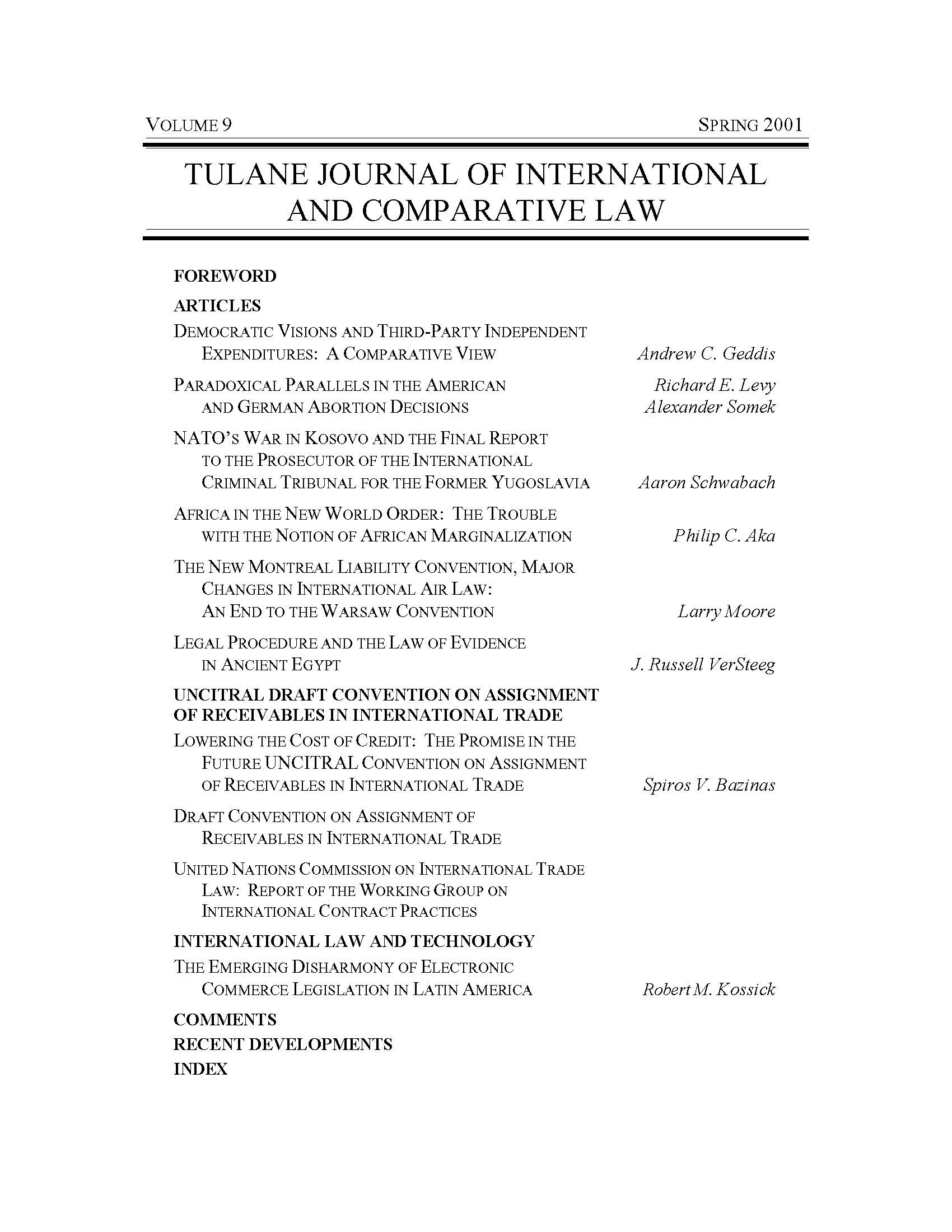The Emerging Disharmony of Electronic Commerce Legislation in Latin America
Abstract
The Internet presents one of Latin America’s most important developmental opportunities. Even at this early point in its evolution, the unique communication efficiencies associated with the worldwide Web have facilitated the integration of Latin America into the global economy, made regional businesses more competitive, increased popular awareness of and participation in the formation of governmental policy, injected an element of accountability into public thinking, and contributed to the preservation of the environment. If, going forward, the nations of Latin America are to exploit these and other developmental opportunities fully, it is imperative that the region’s governments adapt the formalistic writing, signature, and authentication standards and procedures contained in outdated codes to the reality of the digital age. While it was initially hoped that Latin governments would introduce new laws based upon the principles, objectives, and model provisions of the MLEC, it is increasingly apparent that the disparate legislative examples of other nations and regions (for example, the United States and the European Union) are having an even more profound impact on national initiatives to modernize writing, signature and authentication requirements and procedures. This tendency has been exacerbated, moreover, by the promulgation of provisions designed to safeguard the monopoly positions enjoyed by Latin authentication professionals. Almost four years after the MLEC’s completion, Latin America has not harmonized the set of provisions originally envisioned but, rather, created a patchwork of substantially divergent—and, in some cases, functionally incompatible—laws. The author argues that the absence of a uniform legislative framework with respect to data messages and electronic signatures will undermine legal certainty in electronic contracts and consumer confidence in contemporary security and authentication methods. These outcomes, the author further argues, have the potential to increase the cost and complexity of electronically realized international transactions and could impede the growth of electronic commerce and development in Latin America. The author concludes by advocating that the introduction and adoption of either a regional or supra-national level convention containing harmonized provisions would ameliorate the negative effects produced by the emergence of inconsistent e-commerce regulations in Latin America.
